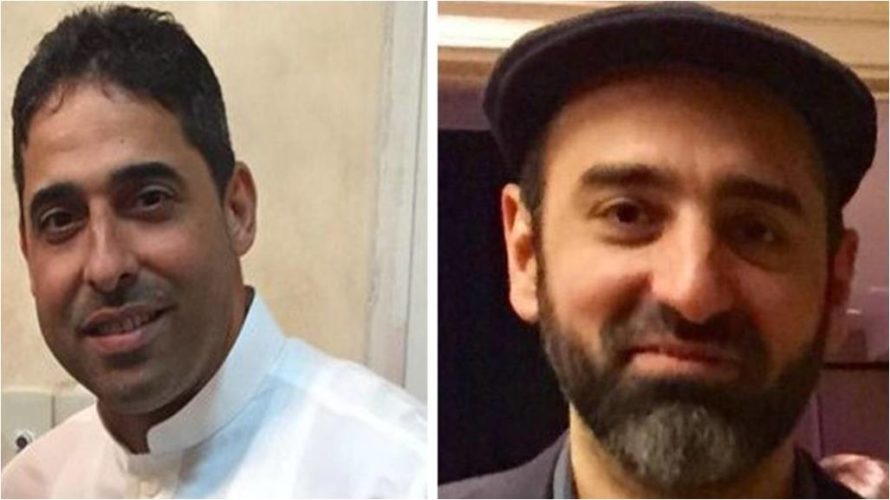On 29 and 30 October, Saudi Arabia tried two prominent human rights defenders, Essam Koshak and Issa al-Nukheifi respectively. Al-Nukheifi was initially arrested in 2012 after he appeared on a television program and accused Saudi authorities of corruption and human rights violations. Koshak was detained in January 2017 and accused of “inciting public opinion,” and “supporting the hashtag to end the guardian system for women (#IAmMyOwnGuardian).” Despite their trials, scheduled to take place on 3 October being postponed by the prosecution, the two were finally tried by a reportedly “non-independent” judge. Koshak’s verdict is expected to be returned on 28 November, and al-Nukheifi’s should be returned on 19 November.
Al-Nukheifi is an activist, a prominent human rights lawyer, and former Editor-in-Chief of the electronic newspaper Al-Waqa. He advocates for people who are forcibly displaced from the border between Saudi Arabia and Yemen, and is an opponent of the Saudi-led coalition in Yemen. Activists, human rights defenders and journalists are often targeted on the Saudi-Yemeni border for their work against the coalition, and al-Nukheifi is a vocal opponent of such actions. In 2009, he documented the stories of nearly 12,000 forcibly evicted Saudi residents of Jizan, a province on the border. Because of his work, al-Nukheifi was arrested on 13 September 2012, after being summoned by the General Investigation Directorate (GID), on the charge of “lack of good citizenship” – a blanket term often used to condemn activists for their online media posts. In his own words, al-Nukheifi was arrested “due to [his] disclosure of corruption in [J]izan city led by the prince deputy, Abdullah Al-Swaid and mafia in the city who issued an arrest warrant against me sent to the criminal investigation to arrest me in province of Al-Aridah.”
Al-Nukheifi was released from prison in mid-2016 after serving almost four years. Then, only a few months later on 18 December 2016, he was detained again. The new charges include “inciting public opinion against the rulers”, “insulting the authorities”, and “calling for the release of individuals affiliated with banned organizations, such as the Saudi Civil and Political Rights Association (ACPRA), and of being in contact with alleged members of the opposition.” He claims authorities tortured him during his detention, and he led a hunger strike in his defense. While he waited for his most recent 2017 trial, al-Nukheifi was held at the Al-Ha’ir Criminal Prison in Riyadh where he had been transferred from the Mecca General Prison in August.
Saudi authorities detained Koshak, an activist interested in exposing Saudi corruption and defending free expression, in January 2017 upon his arrival at the GID as he responded to a summons. He reportedly had no access to his family or lawyer while awaiting his trial. While in detention, his trial was continuously delayed and his detention period was repeatedly extended as he was transferred to various prisons, including Al-Ha’ir Criminal Prison in Riyadh and Mecca General Prison. While in detention, officials subjected him to derogatory and violent interrogations and primarily questioned him about his human rights defense work, in particular the opinions expressed on his personal Twitter account.
The Bureau of Investigation and Prosecution (BIP) and the GID are responsible for the mistreatment and torture of Koshak and al-Nukheifi as well as for their spurious expression-related charges. Along with Koshak and al-Nukheifi, these two institutions have targeted many Saudi citizens who were brave enough to speak about human rights abuses. For a long time, both agencies were overseen by the powerful Minister of Interior (MOI) – the agency responsible for many of the rights abuses in Saudi Arabia. The GID (also known as the Mabahith) is still under the authority of the Minister of Interior and it functions as the kingdom’s secret police. To this end, it has targeted, arrested, and tortured many Saudi citizens, especially human rights activists, peaceful dissidents, and members of the kingdom’s Shia minority. Where the GID has been responsible for targeting and detaining prisoners, the BIP is the organization responsible for responsible for trying and convicting prisoners, including many human rights defenders, activists, and peaceful dissidents. Human Rights Watch says that the BIP is guilty of “harassment, endless summonses for interrogation, arbitrary detention, and prosecution in blatantly unfair trials on laughably spurious charges.”
Essam Koshak and Issa al-Nukheifi are only some of the most recent human rights defenders to fall victim to the repressive hand of the Saudi government. They were targeted because they sought to exercise their internationally-recognized right to free speech and they are being not only unfairly punished, but also unfairly tried and they may possibly be unfairly sentenced to jail merely for expressing dissenting opinions about their government’s human rights abuses. Like many other human rights defenders, the two were reportedly subjected to various types of torture and mistreatment while detained. Koshak and al-Nukheifi, as well as all prisoners of conscience in Saudi Arabia, must be released from prison and protected from the possibility of future government reprisals for their human rights work.
Sophie Marianos is an Advocacy Intern at ADHRB





